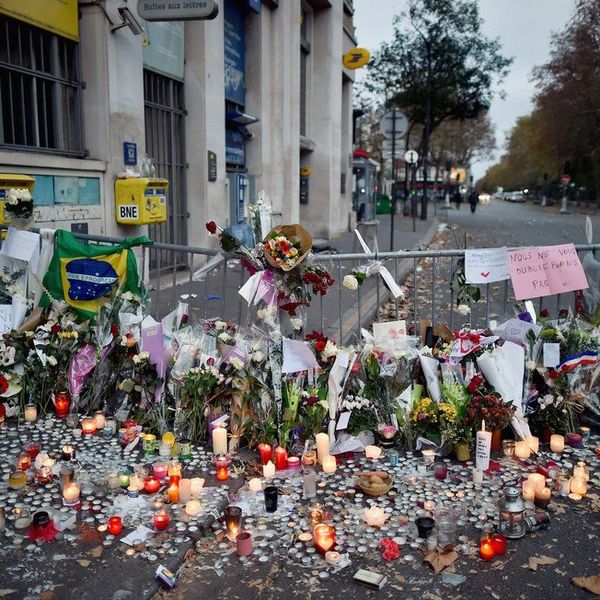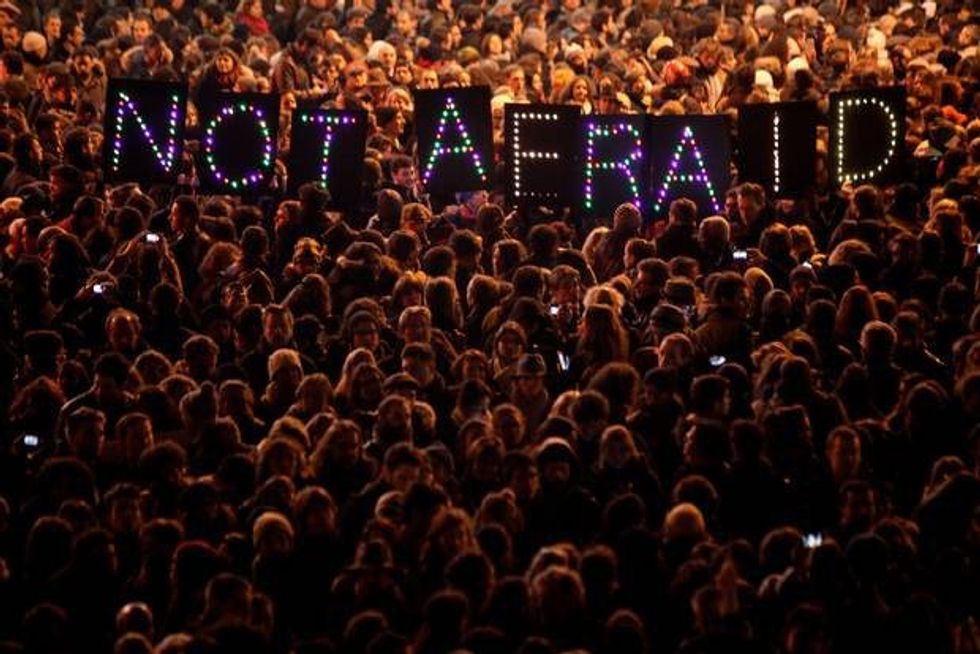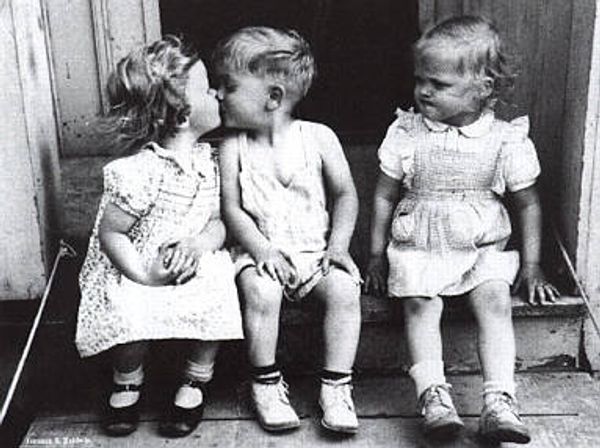The events in Paris have left many distraught, angry, saddened, and confused. There have cries for retaliation and response. There is frustration with the lack of reporting of another terrorist attack in Beirut only the day before. As a history major, I try and look at history as a story; things don't just happen for no reason; there are causes and reactions, even if the reasoning behind them don't always make sense to us. So, here I will try to draw up the events leading to this attack and how the Beirut attack is important to mark when considering the attacks in Paris.
Now, this is a highly complicated issue, and one that I, by no means, think I am doing justice here, but even a little bit of clarity could help some people understand how all of this -- Paris, Beirut, the Islamic State -- is connected.
- 1999:
- 2001:
- The U.S. is attacked on September 11 by al-Qaeda hijackers. The U.S. responds with a military invasion of Iraq and Afghanistan in attempts to bring down al-Qaeda leader Osama Bin Laden and former Ba'ath revolutionary and Iraqi president Saddam Hussein.
- 2004:
- October: ISIL joins al-Qaeda.
- 2010:
- December: The Arab Spring begins across much of the Middle East and North Africa, involving civil wars in Tunisia, Egypt, Libya, Yemen, Bahrain, and Syria, with protest occurring in Algeria, Iraq, and several other countries. In Tunisia, Egypt, Lebanon, and Yemen, these protests and conflicts lead to actual government change, while many other countries are still in conflict, namely Syria.
- 2011:
- March: After the protests of the Arab Spring begin, a full-out civil war begins in Syria, between the Bashar al-Assad and his Ba’ath Government, and the opposition.
- June: The Islamic State joins in the fray, after seizing territory and weapons from Iraq, causing mass death and attempting to annex large portions of Syrian territory during the fighting.
- Fighting in Syria almost immediately begins to spill over into Lebanon, due to their physical proximity. Casualties and destruction are rampant across both countries.
- Refugees from both countries immediately begin trying to gain access into Europe, although the fighting has only just begun.
- 2013:
- ISIL officially captures territory on April 8, 2013, declaring itself the Islamic State, over an area called the Levant, which includes major parts of Syria, Iraq, and Lebanon.
- 2014:
- February: ISIL officially separates from al-Qaeda.
- June: ISIL declares a caliphate, led by Abu Bakr al-Baghdadi, creating a governmental and religious hierarchy
- August: ISIL begins filming and uploading videos of beheadings of initially Western civilians, featuring British-Arab Mohammed Emwazi, nicknamed “Jihadi John” for his British accent, making the four ISIL members “The Beatles” terrorist cell.
- 2015:
- January: French satirical weekly newspaper Charlie Hebdo is attacked by two al-Qaeda terrorists. ISIL promises France that there will be more retaliation in the future. France is on high alert.
- The Syrian Refugee Crisis has reached a frenzy, as people risk their lives to gain passage into Europe, and Syria is ripped apart due to civil war and ISIL attacks.
- September-October: Russia begins sending troops to Syria to help defeat ISIL.
- October 31: Russian Metrojet Flight 9268 crashes in northern Sinai, Egypt. Early reports indicated a technical failure, but after ISIL claims responsibility for the crash, the general consensus is that a bomb went off on the plane.
- November 12: ISIL bombs a suburb of Burj al-Barajneh in Beirut, Lebanon, a known stronghold of the Shia Islamist Hezbollah movement, a group that allied themselves with the Ba’ath government of Syria.
- November 12: The U.S. confirms that drone strikes have killed Mohammed Emwazi, or "Jihadi John," stating that they have a "high degree of certainty" that he was killed.
- November 12-13: ISIL claims responsibility for a roadside bomb that hit a funeral and memorial service in Baghdad.
- November 13: ISIL carries out a highly coordinated attack in Paris, attacking a restaurant, a football stadium, and a night club, killing civilians and causing panic for hours. France closes its borders and stopped all travel for a time. The French president declares that this is an act of war, and international condemnation of the attacks is declared as well. (Mirror Online has a great visual timeline for anyone who wants a breakdown of the events in Paris.)
With the three attacks in the last two weeks, two things are important to note: These are no longer local or domestic attacks for ISIL and the victims of these attacks are civilians. The attack in Beirut makes a little more sense (but I am in no way condoning the killings), because of the militaristic or political reasons, but overall, these were civilian areas that have been attacked. It is difficult to wrap your head around why they chose to attack civilians, when in America, the attacks are so often against political targets.
I would like to state that this Beirut bombing is one of an innumerable amount of attacks and bombings that have been subjected about Lebanon and other Middle Eastern countries by the Islamic State. ISIL doesn't just attack Western countries and Christians. They kill Muslims as well, and much more frequently.
As a friend of mine pointed out, American and Western media focused so heavily on the Paris attacks because they were unexpected while the Beirut attack has become something of a routine. This is awful, sickening, and terrible -- do not get me wrong -- but it also shows the unpreparedness of the Western world to outside forces.
The bottom line of these attacks is simple: It is the desire to spread fear and chaos. And it has worked before -- notice how you have to take off your shoes while going through security at any American airport (European airports may do the same, but I personally have never been through one).
I know and understand that all I have done is given you a sliver of what the whole story is. But hopefully, this can help get a conversation going or at least alleviate some confusion about these awful events in France and Lebanon.
I have seen arguments from both sides, and a division on this issue will not help anyone -- certainly not the millions of people caught in war or displaced from their homes across the Middle East.
The refugees are not to blame. Muslims, or even Islam, is not to blame.
It is a small group of evil people that want to harm anyone in their path that have caused panic and fear and hatred across the world, and we the world need to ally and prove our solidarity to combat such a force.





















